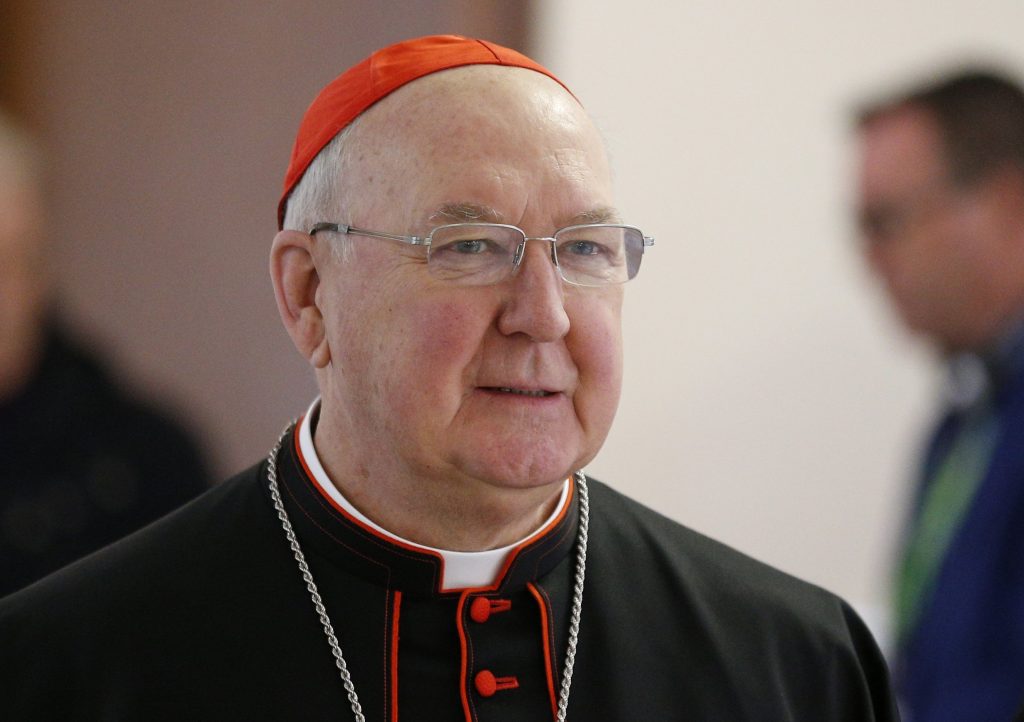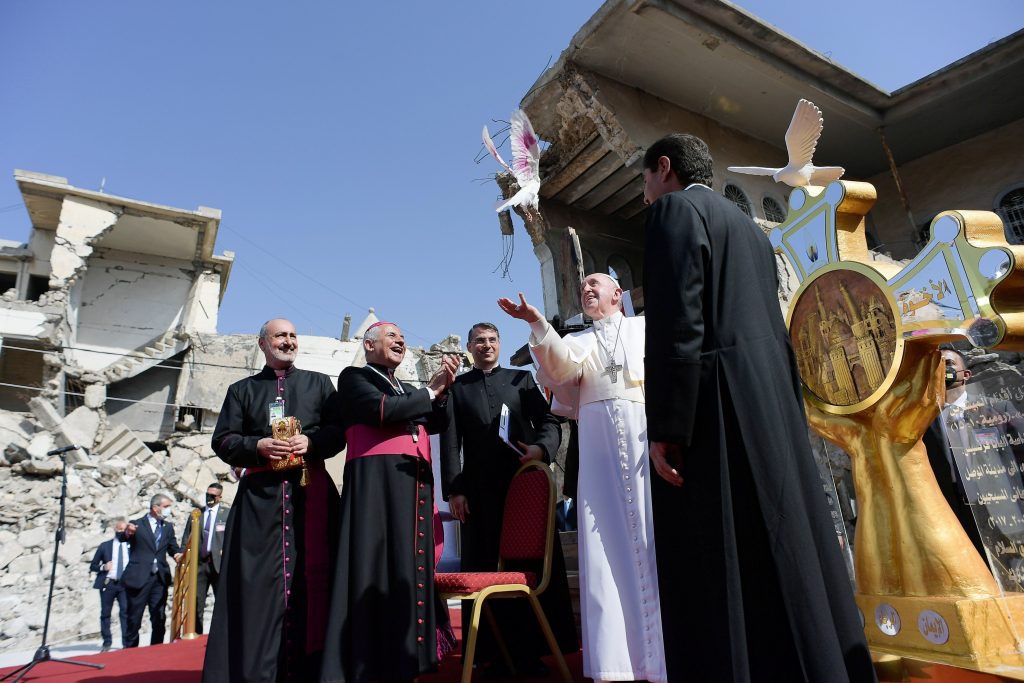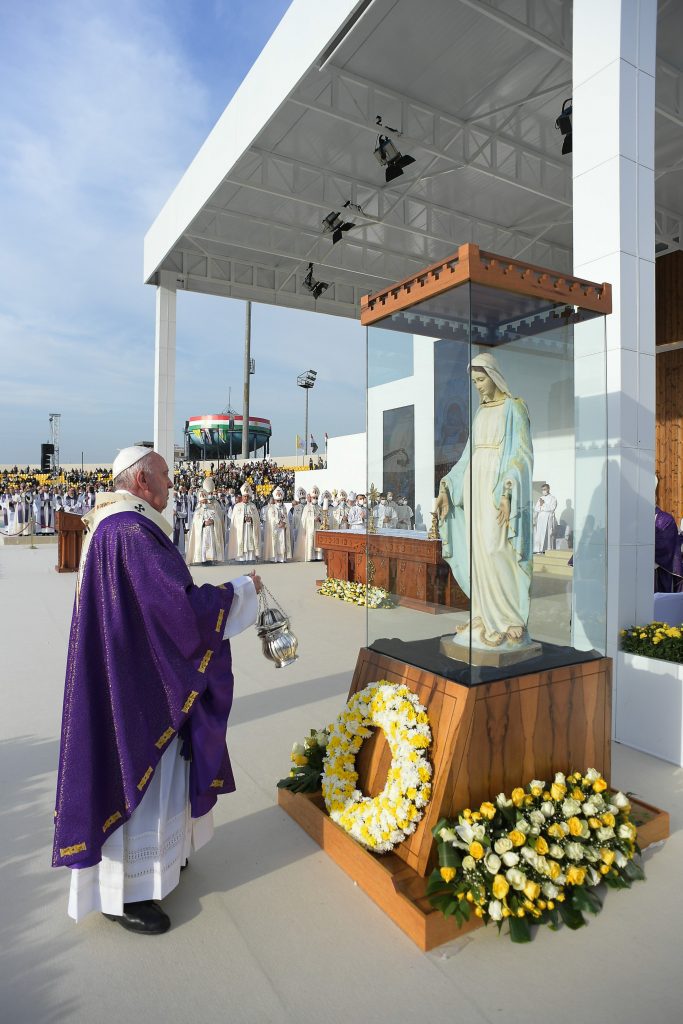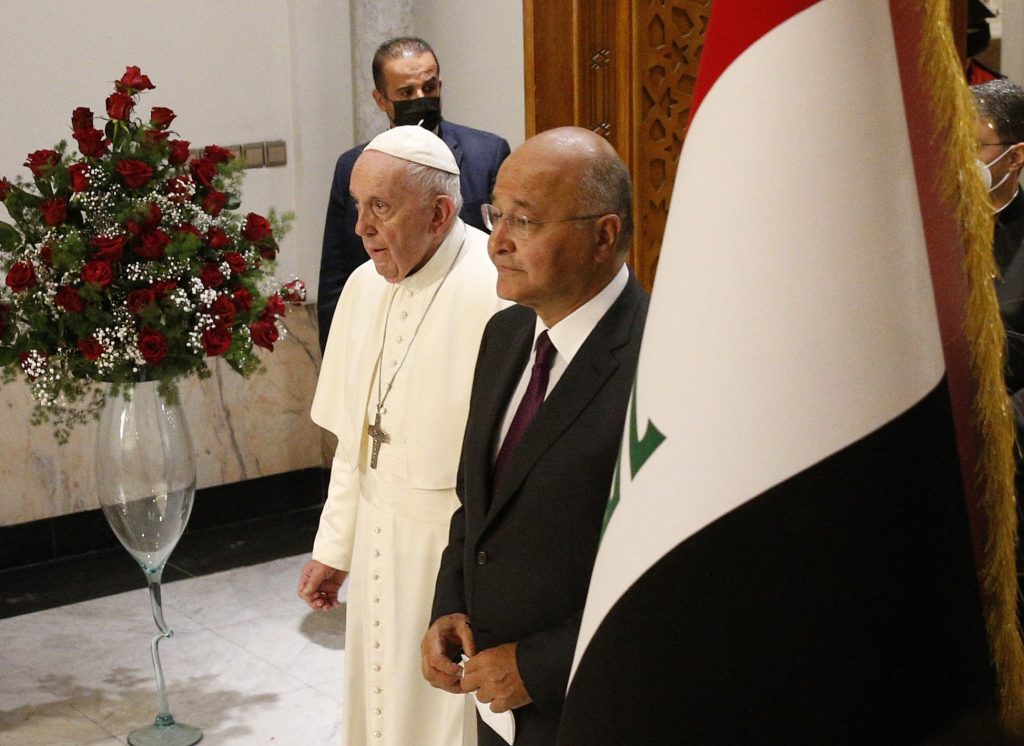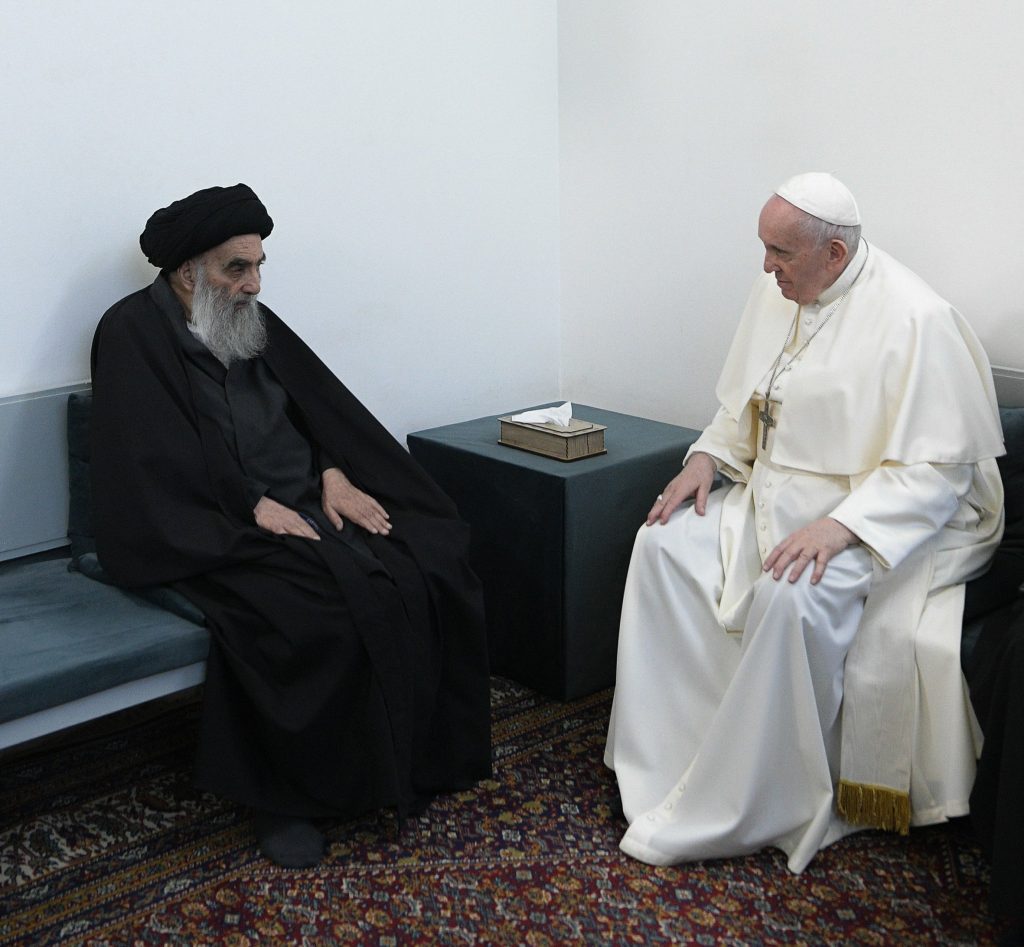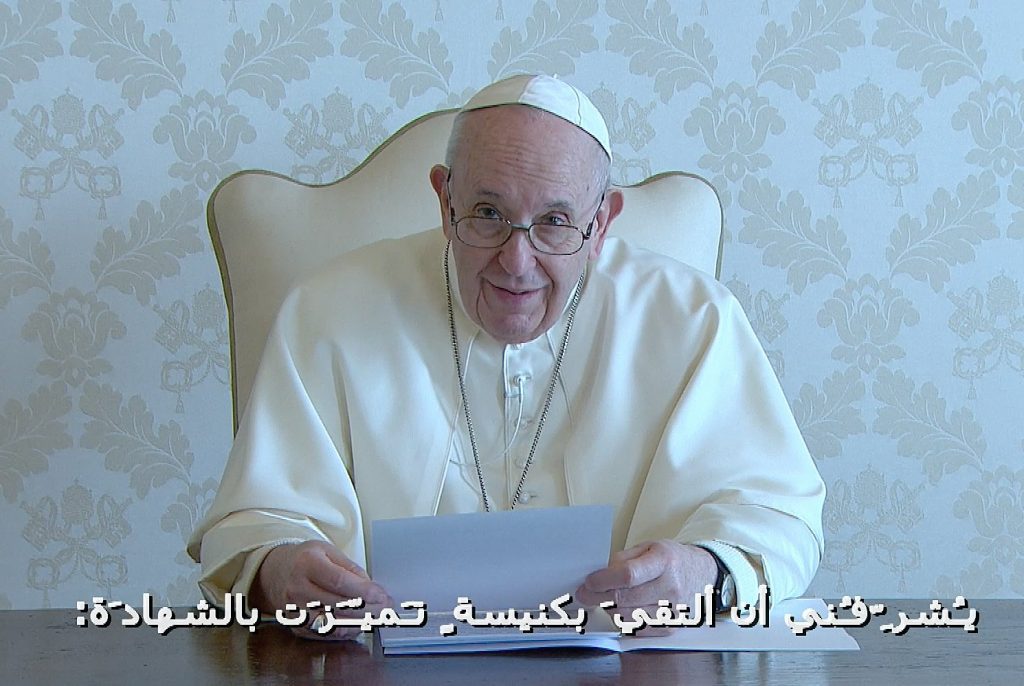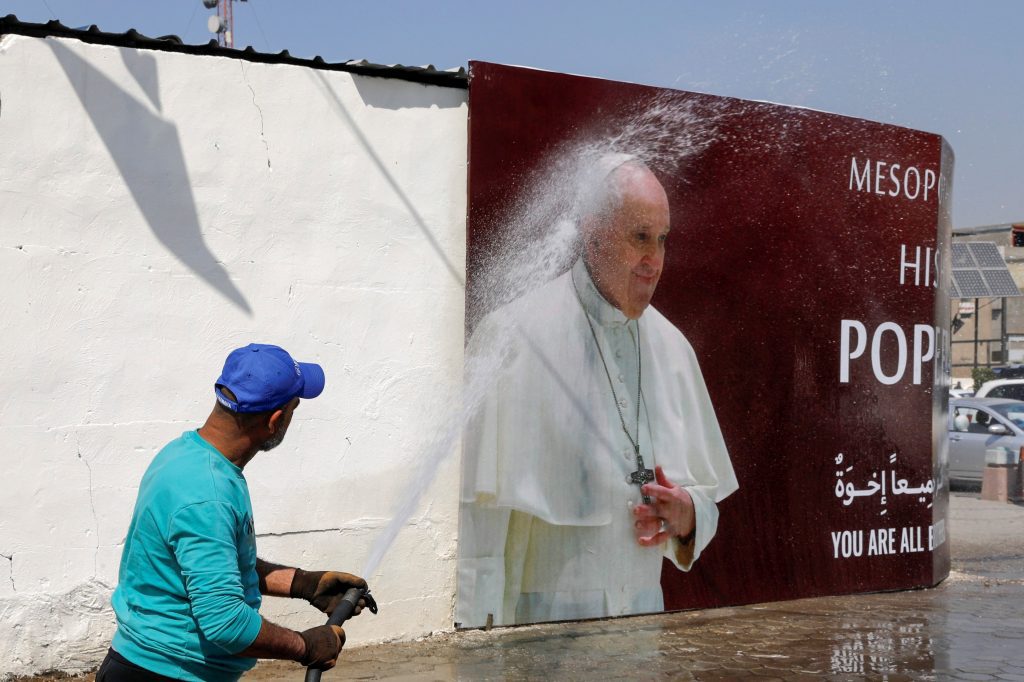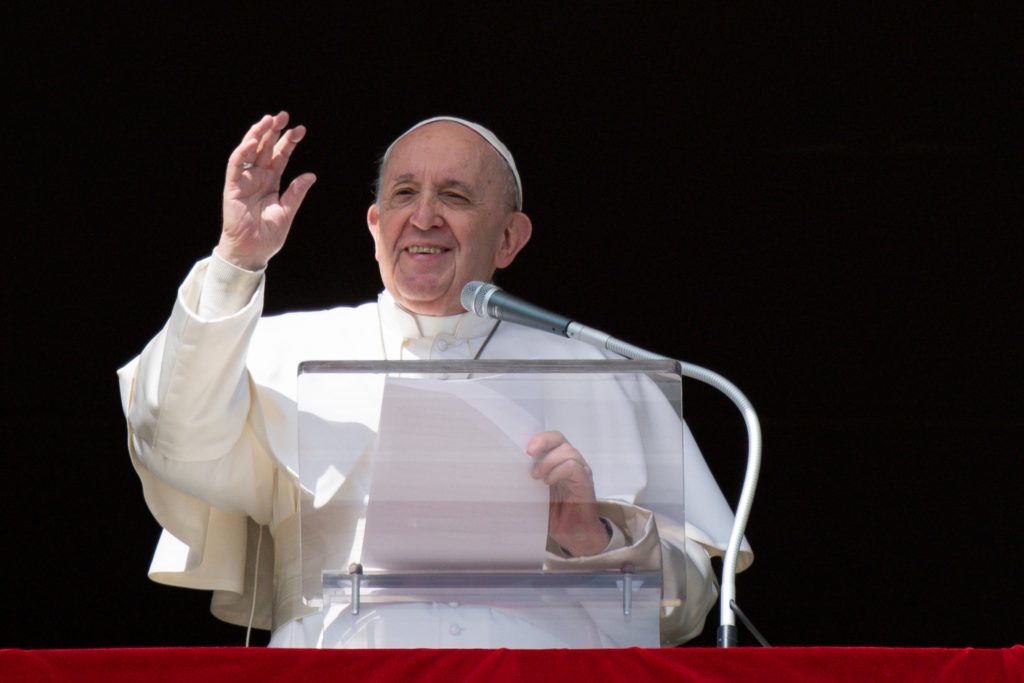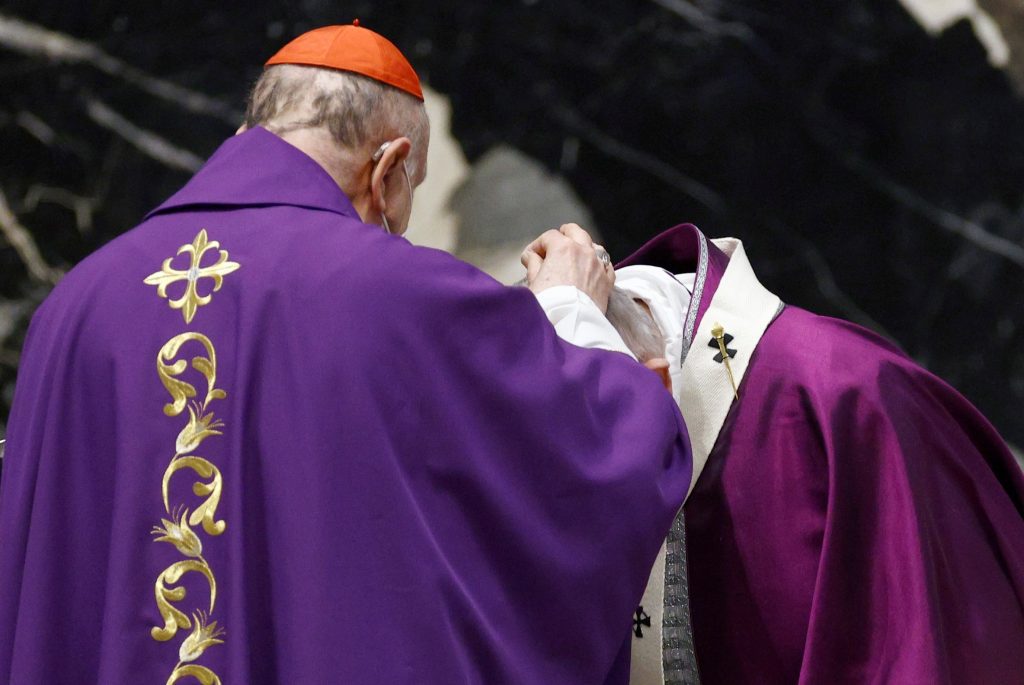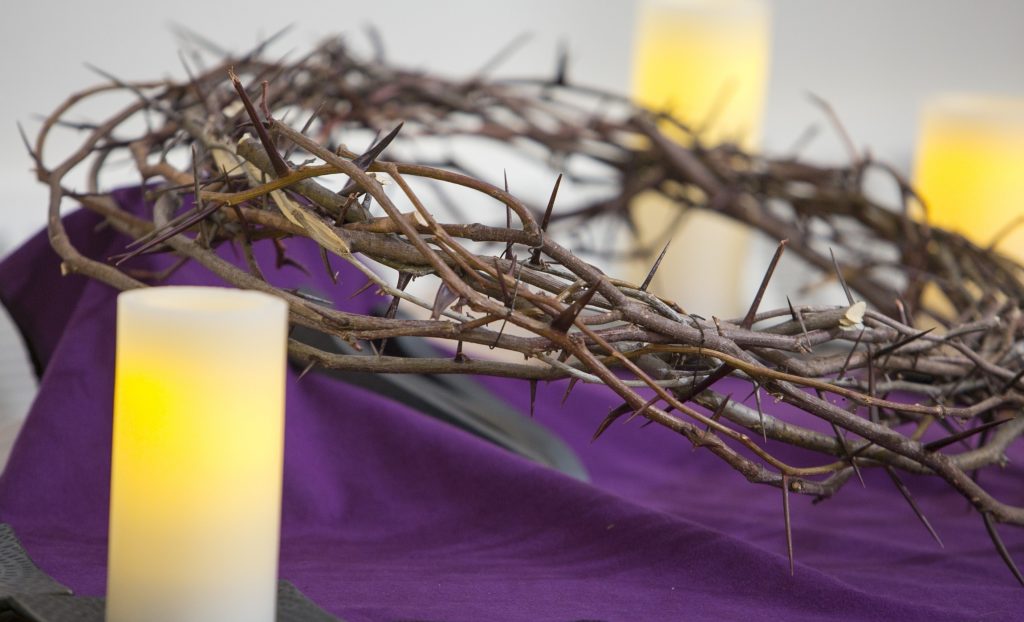
WASHINGTON (CNS) – The qualities embodied in Pope Francis’ papacy that led to the coinage of the term “Francis Factor” to define them still exist, according to participants on a panel during a March 18 dialogue.
“The overwhelming poverty in Latin America, the majority of the poor in Latin and Central America and the Caribbean — that is very significant in shaping his worldview, his ministry and his pastoral outreach,” said Michelle Gonzalez Maldonado, dean of the College of Arts and Sciences at the University of Scranton, Pennsylvania, and the daughter of Cuban immigrants. “That has framed so much of his papacy.”
“I think Pope Francis challenges Catholics all over the world, not just the USA,” said Ghanaian Cardinal Peter Turkson, head of the Vatican Dicastery for Promoting Integral Human Development, during the dialogue, “The Francis Factor at Eight Years: Global Impacts, U.S. Challenges,” the annual Dahlgren Dialogue sponsored by Georgetown University’s Initiative on Catholic Social Thought.
Catholic News Service Rome bureau chief Cindy Wooden, who has been part of CNS’ Rome bureau since 1989, saw that during Pope Francis’ recent visit to Iraq.
“He honored and consoled the Christian communities in Iraq who have been so harshly tried over the past 20 years,” Wooden said, but he also “challenged them to honor the sacrifice, to live their faith and not give in to revenge or resignation.”
Panelists — including Cardinal Sean P. O’Malley of Boston, a member of Pope Francis’ Council of Cardinals, a group of key advisers — described how the Francis Factor existed early in his papacy. For Cardinal O’Malley, it started even before he was elected pope.
During the conclave at which he was elected, Cardinal Jorge Mario Bergoglio of Buenos Aires “challenged us to be outward looking. That really captured the imagination of the cardinals,” Cardinal O’Malley said.
Pope Francis “comes with a lot of discernment, after which his activity is very fast,” Cardinal Turkson said.
The symbolism of the name Francis, after St. Francis of Assisi, also is important, he added. “When he shed his cloak it was not to move away from the world,” Cardinal Turkson said, “it was to engage more fully within the world.”
Gonzalez Maldonado remembered teaching in Rome and being at lunch with a Muslim former student of hers when word came of the white smoke appearing, signaling the election of a new pope.
“Seeing the diversity of the races in the square” and the languages heard, “I felt so blessed and moved by the experience, and equally blessed and moved by my former student, who felt like she was part of an important event in human history,” Gonzalez Maldonado said.
“For me, that’s something definitive of Francis, who has opened up the Catholic Church in so many ways.”
“The moment that symbolizes the Francis Factor for me,” Wooden said, “is when right before giving his first apostolic blessing as pope, he asked the people in the square to ask that God would bless him, and he would bow while waiting for their prayer, To me, it’s a sign of love and respect and recognition that God is working in every single human being, individual and group, that is standing before him.”
Pope Francis “wants to see a church that is truly a church of the poor and is accessible,” Cardinal O’Malley said. “Even the Holy Father’s writings are accessible to people. The Holy Father is trying to reach out to the world and draw us all closer together. He sees our call to take care of one another. Mercy and evangelization are two of the central themes of his pontificate.”
The ongoing clergy sexual abuse scandal is a challenge, Cardinal O’Malley said. “Pope Francis so often talks about pastoral conversion. That is so necessary if we are to be able to bring healing to the situation in our church due to clergy sexual abuse. The conversion begins by listening to the survivors and the victims.”
When Pope Francis created the Council of Cardinals and put Cardinal O’Malley on it, “the first thing I said is that he should meet with victims. He did, and he said it moved him profoundly” as it had with retired Pope Benedict XVI when he met with survivors during the Washington segment of his 2008 visit to the United States, the cardinal said.
That Pope Francis hails from Latin America, “the largest population of the faithful, globally,” Gonzalez Maldonado said, “means that we’re being acknowledged and recognized.”
She added, “When he talks about the fact that racism is a virus that mutates, and it never disappears, it goes into hiding … part of that is understanding our history in the church, our institutions.”
Teaching as she does in Scranton, the hometown of President Joe Biden, Gonzalez Maldonado said there can be policy consensus between the Vatican and Washington.
“An important place where we can see the church – and we have seen the church – be a prophetic voice is for the children and the men and women who are seeking asylum in this country. The Biden administration can really listen and be informed” by the church, she said.

